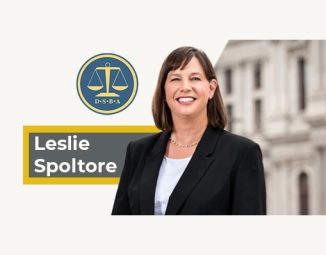Same-Sex Partner Not Found a Parent and Not Found In Loco Parentis
With the evolution of same-sex marriage, the concerning issues that existed between same-sex couples in custody matters appeared to dissipate. However, in the recent case of C.G. v. J.H., the issue of standing in a child custody matter between same-sex partners has resurfaced and the result thereof has caused some concern.
The recent case of C.G. v. J.H., ___ A.3d ___, 2017 Pa. Super. 320 (Oct. 10), has caught the eye of many family law practitioners. One of the hot topics in Pennsylvania Custody Law is whether an individual has standing to bring a custody action. In the past, there were a number of cases that were published that pertained to child custody disputes between same-sex partners. Previously, the issue of standing in child custody cases pertaining to same-sex couples created an inequity as the nonbiological parent was considered a third-party, which put that person at a disadvantage in certain forms of custody litigation.
With the evolution of same-sex marriage, the concerning issues that existed between same-sex couples in custody matters appeared to dissipate. However, in the recent case of C.G. v. J.H., the issue of standing in a child custody matter between same-sex partners has resurfaced and the result thereof has caused some concern.
The facts of C.G. are as follows: C.G. and J.H. lived together as a same-sex couple in Florida. In October 2006, J.W.H. was born. Approximately five years later, the parties separated. J.H. is the biological mother of J.W.H. According to the opinion, C.G. alleged that she acted as the mother of J.W.H. and that she and J.H. participated in selecting a sperm donor.
Six months after the parties separated, J.H. and the child moved to Pennsylvania. Approximately 3½ years after J.H. and J.W.H. moved to Pennsylvania, C.G. filed an action in Pennsylvania seeking shared legal custody and partial physical custody of J.W.H. J.H. thereafter filed preliminary objections challenging C.G.’s standing to seek custody. C.G. responded to J.H.’s preliminary objections “asserting that she had standing under the Child Custody Law both as a parent of the child, … and as a person who stood in loco parentis to the child.”
The trial court held hearings on the preliminary objections and “received conflicting testimony from 16 witnesses about C.G.’s role in the child’s life.” Thereafter, according to the opinion, the trial court sustained J.H.’s preliminary objections and dismissed the custody complaint filed by C.G. with prejudice. C.G. filed an appeal with the Superior Court.
The primary issues on appeal pertain to the trial court’s ruling that C.G. did not have standing as a parent and that C.G. did not stand in loco parentis to J.W.H. as well. At the time of J.W.H.’s birth, same-sex marriage and second parent adoption were not yet recognized in Florida. Under the Child Custody Act, standing is conferred on a “parent of the child,” but does not define “parent.” According to the Superior Court, “Pennsylvania courts have interpreted ‘parent’ to include only biological and adoptive parents.” The Superior Court also stated that “case law has consistently treated the same-sex life partners who have not adopted the child as third parties for purposes of custody matters.” As such, the Superior Court found that the trial court did not err in finding that C.G. lacked standing as a parent under Section 5324(1) under the Child Custody Act. This holding has caused concern among some family law practitioners considering the treatment of the term “parent” in other cases where the child is conceived through assisted reproductive technologies.
The other primary issue of the C.G. case pertains to whether C.G. had standing to bring her child custody action through in loco parentis status. A person stands in loco parentis to a child when the person “puts oneself in the situation of a lawful parent by assuming the obligations incident to the parental relationship without going through the formality of a legal adoption.” Under the Child Custody Act (Section 5324(2)), a person can have standing to bring a child custody action if the person stands in loco parentis to the child. However, it is important to note that if an individual qualifies under in loco parentis standing to bring a custody action, that party will be considered a third-party and not parent. In custody disputes pertaining to primary physical custody, there is a presumption in favor of a parent over a third party.
According to the opinion, the decision pertaining to whether C.G. had standing under in loco parentis status was based primarily on conflicting facts. C.G. alleged that she acted as a co-parent to the child in their family structure where the child resided with the parties as a family for a period of five years.
As stated by the Superior Court in its decision: “the Supreme Court has explained that ‘the status of in loco parentis embodies two ideas; first, the assumption of a parental status, and, second, the discharge of parental duties.’” According to the opinion, after hearing extensive conflicting testimony regarding C.G.’s role in J.W.H.’s life, the trial court held that C.G. did not stand in loco parentis to J.W.H. The following are some of the findings reflected in the Superior Court’s opinion that led the trial court to conclude that C.G. did not have in loco parentis status: the parties took no steps to formalize a co-parenting arrangement and neither party suggested adoption after adoption by members of a same-sex couple became a legal option in Florida in 2010; C.G. never agreed to have a child, but merely tolerated the idea of J.H. having a child; although C.G. initially carried the child on her medical and dental insurance, she removed him from her policies after the parties separated; C.G. was not listed as a parent on school or medical documents and was not intended to be the child’s guardian if something happened to J.H.; J.H. did not consult C.G. regarding educational or medical decisions, including preschool selection, doctor selection or appointments, child care, and the child’s activities; C.G. did not assume the role of a decision-maker for the child or make contributions amounting to that of a parent. The trial court also focused on the time period after the parties separated and highlighted that C.G.’s extended family members have not reached out to the child since the parties separated and that C.G. had minimal contact with the child after the parties separated.
Interestingly, in a footnote, the Superior Court dismisses three pieces of evidence which were not “she said/she said”: two handwritten notes from J.H. to C.G. and C.G.’s life insurance policy, on which she identified the child as her son. It appears that those pieces of evidence were not conflicting as was all of the other evidence that was submitted to the trial court. However, based on the totality of the evidence submitted, the trial court found that C.G. lacked standing under loco parentis. According to the Superior Court: “faced with conflicting testimony regarding C.G.’s role in the child’s life, the trial court acted well within its discretion in resolving those conflicts in favor of C.G.” The Superior Court then affirmed the trial court’s holding that C.G. lacked in loco parentis status.
This case is an important case for family law practitioners in that it impacts who is considered a parent in assisted reproductive technology custody cases. Further, the court found that C.G. lacked standing to bring a custody action despite the fact that she and J.H. lived as a family with the child for five years. The case also highlights many other legal aspects regarding preliminary objections containing factual disputes as well as a request for a demurrer. The Superior Court stressed there is a difference between allegations and actual proof, and the Superior Court found that the proof submitted in this case pointed towards a lack of standing by C.G. It will be interesting to see how the case is treated in the future in other similar circumstances in other matters.
Same-Sex Partner Not Found a Parent and Not Found In Loco Parentis.pdf
Michael E. Bertin is a partner at the law firm of Obermayer Rebmann Maxwell & Hippel. Bertin is co-author of the book “Pennsylvania Child Custody Law, Practice, and Procedure.” He is a Fellow of the American Academy of Matrimonial Lawyers, a former chair of the family law section of the Philadelphia Bar Association, the current co-chair of its custody committee, and holds the officer position of first vice chair of the family law section of the Pennsylvania Bar Association. He be reached at 215-665-3280 or michael.bertin@obermayer.com.
The information contained in this publication should not be construed as legal advice, is not a substitute for legal counsel, and should not be relied on as such. For legal advice or answers to specific questions, please contact one of our attorneys.
Reprinted with permission from the December 19, 2017 edition of THE LEGAL INTELLIGENCER © 2017 ALM Media Properties, LLC. All rights reserved. Further duplication without permission is prohibited. For information, contact 877-257-3382, reprints@alm.com or visit www.almreprints.com. #201-12-17-06






